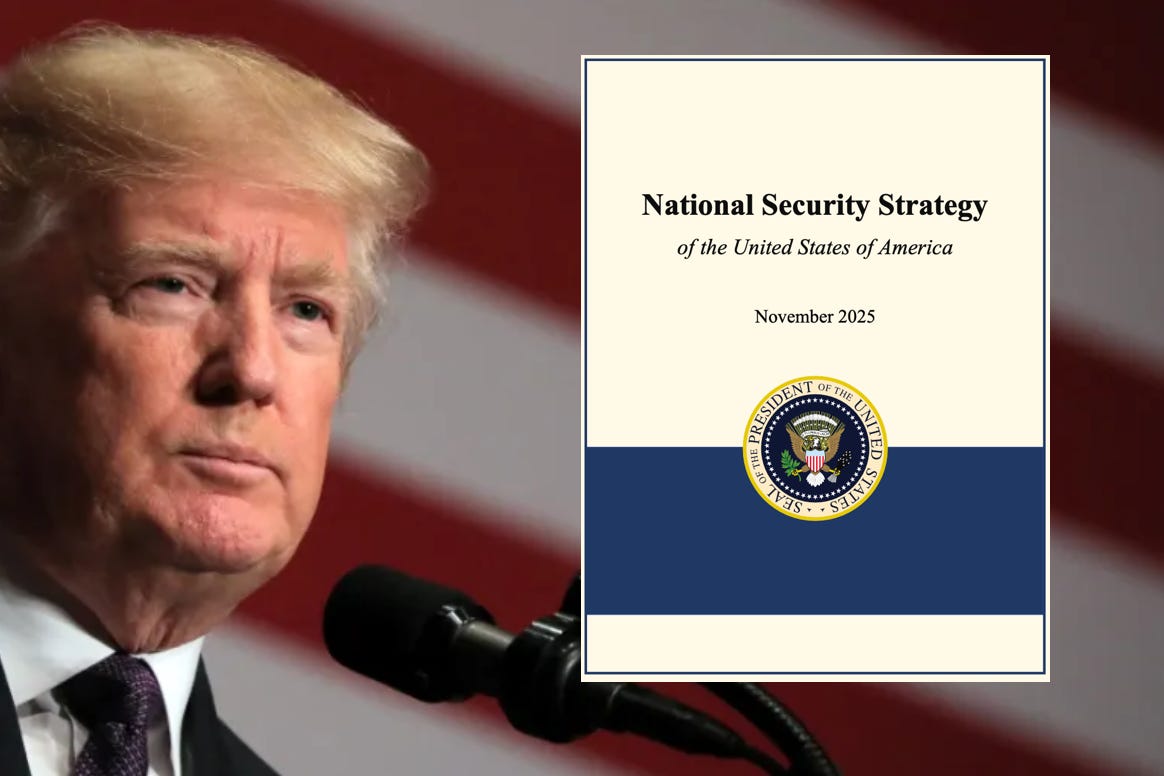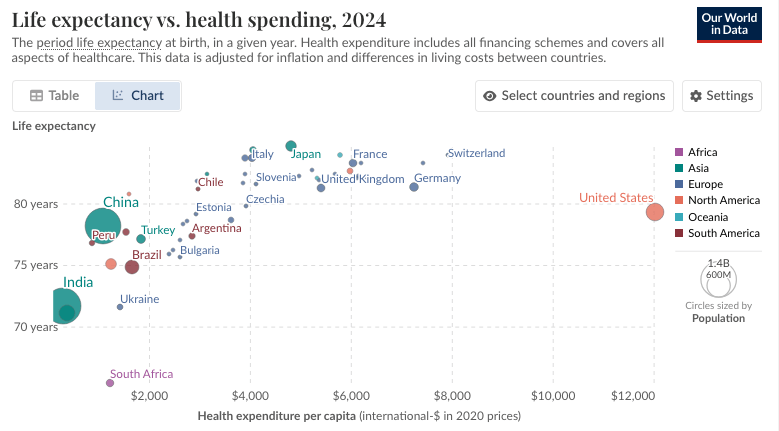
Is there any hope of finding a common reality?
Wednesday in Minneapolis, ICE agent Jonathan Ross shot American mother Renee Good three times, killing her. There is so much to be upset about here, it’s hard to pick a focus. So I’ll start by listing a few and justify them later.
- The shooting was senseless and had no legitimate justification. (See below.)
- Despite the presence of numerous law enforcement officers, Ross was not taken into custody and was allowed to drive away with his weapon.
- DHS Secretary Kristi Noem immediately lied about the incident, pushing a narrative that painted Good as a “domestic terrorist” and made Ross the victim of her attack. President Trump and Vice President Vance quickly reinforced this lie. Noem repeated her gaslighting in an interview with Jake Tapper Sunday.
- The false story Noem and other told is virtually identical to the stories ICE has told after previous violent incidents. Sometimes objective evidence doesn’t exist and those accounts have stood. But when evidence does exist, like video footage from body cams or bystanders with phones, it often shows that the ICE agents have lied about confrontations that they themselves caused and escalated.
- ICE agents have subsequently shown extreme disrespect for Good and those mourning her. One agent (possibly Ross) can be heard to say “fucking bitch” immediately after the shooting, while another later kicked over candles mourners had set up to honor Good. (What kind of asshole does that?)
- The FBI has blocked state and local police from investigating the shooting. So the only investigation will take place within DHS, whose leader has already announced a conclusion we know to be false.
Those things are all true and objectionable, but most of them are being well discussed elsewhere. This morning, I want to take a step back and look at something else: the ability of right-wing media to keep telling a story conflicting with widely available evidence, and the apparent belief inside the MAGA news bubble that objective reality does not exist; what you think happened is simply a matter of who you choose to believe and what evidence you choose to examine.
To me, analyzing the videos of this shooting should resemble what happens in instant-replay review during a sporting event. A questionable play has happened, and then the refs examine the available video. Typically, one or two camera angles aren’t definitive: Looking at them, you can still imagine outcomes favorable to either team. But then you get the angle that makes everything clear. (Here’s the ball, here’s the goal line. It either did or didn’t cross. Or: Here’s the shooter when the clock hits zero. The ball either is or isn’t out of his hand.) Once you’ve seen the definitive angle, the other angles don’t matter any more. You don’t go back to a previous shot and say, “Sure, but in this one the other conclusion still seems possible.”
In this case, there are several decisive moments and angles, all consistent with each other. Like this one, which is a still from a bystander video analyzed in detail by the New York Times:
Ross is the agent behind the agent by Good’s door. His feet are clearly visible to the left of the vehicle, while the front wheels are steering right. (The orientation of the wheels is hard to see in this shot, but clearer when you see the continuous video.) So two conclusions are obvious: (1) Good was not trying to run Ross over, as Noem claimed. Her wheels were pointed away from him. (2) Ross was not in any danger of being run over.
Trump posted a different video along with his claim that “Based on the attached clip, it is hard to believe he is alive, but is now recovering in the hospital.” It is a distant video that lets you imagine that anything could have happened — exactly the kind that the football refs would ignore. And in fact, Ross was not harmed, something that is obvious from video of him walking up and down the street seconds later. (It’s possible he was brushed as the car went by, but nothing more.)
Still, you might imagine that Ross believed he was in danger, even though he wasn’t. That conceivably might justify a self-defense claim for his first shot. (The bullet hole is on the left side of the windshield, consistent with him standing close to the left front wheel, and not directly in front.)
But there are two problems with that justification: First, he’s in front of the car because he moved there. Moving into danger so that you can use that danger as an excuse to kill someone does not usually fly in court.
But even more damning: He shoots twice more. His second shot is through the open window in the driver’s door, and his third comes from behind as Good is trying to drive away. In other words: the SUV has already missed him. Shooting as your alleged assailant runs away is not self defense.
You could also imagine that Ross got scared, panicked, and fired three times before he realized he was safe. Even if true, that’s not much of an excuse. At the very least, a guy with responses this bad should never again have a job where he carries a gun. And if I were a prosecutor, I would see what degree of murder I could make stick.

So far I’ve just been drawing clear conclusions from objective evidence. But now I’ll say what I believe in my heart really happened: ICE’s stated mission is to round up deportable immigrants, but that’s not the whole story. Another part of its mission is to intimidate American citizens, particularly citizens in majority-Democratic cities who might be inclined to protest against Trump’s policies. Intimidation is why they wear masks. (They claim it’s to avoid reprisals, but that excuse doesn’t hold water. Local police and FBI agents also investigate dangerous gangs, but they don’t wear masks. Why are ICE agents more cowardly?) And if you watch ICE behavior, it’s clear what rules of engagement the agents been given: If somebody isn’t sufficiently intimidated, escalate the confrontation until they are.
Renee Good’s primary offense was not being intimidated. When agents gave her conflicting orders, she didn’t freeze, she started to drive away. This made Ross angry, and so he killed her, with “fucking bitch” as her epitaph.
Other ICE agents know this. That’s why they are using Good’s death to further intimidate potential protesters. Here, an agent warns a woman sitting in her car not to “make a bad decision and ruin your life”. Nice life you’ve got there; be a shame if anything happened to it.
What has truly amazed me, though, is not that liars will lie. I never trusted Noem or Vance or Trump or ICE, so seeing them gaslight the country is not the least bit shocking. (A columnist for National Catholic Reporter had a different reaction to Vance: “The vice president’s comments justifying the death of Renee Good are a moral stain on the collective witness of our Catholic faith.”)
What amazes me is the number of people who simply repeat what the regime tells them, either not looking at the evidence or (even worse) looking at it and seeing what they have been told to see.
Friday evening, my church organized a vigil for Good. We stood on our town common and quietly held candles with a few signs. According to a reporter for the local online news, 77 people (some church members and some not) attended, which is not bad for a hastily organized event in a small town.
When I came home from the vigil, I saw the Facebook comments on an article that announced it. (122 at last count.) Many of the commenters repeated the regime gaslighting: Why were we holding a vigil for a woman who tried to kill a federal officer? When others disputed this characterization and pointed to the videos proving otherwise, they were answered by vague references to other videos that supposedly support the regime gaslighting. (Like this one: It does not support the regime, but apparently they looked at it and thought it did.)
I wonder what DHS expects its sheep to see in a video it posted yesterday. It shows the street the shooting happened on, during the three minutes before the shooting. There’s a snowy middle-class residential neighborhood, a lot of honking cars moving slowly, pretty much what you’d expect from the videos already out. Absolutely none of the “violent rioters” a DHS official had mentioned.
Maybe the point of such a video is just that it exists. I could point to a brick and claim that it proves I’m right about something. And if you’re sufficiently sheeplike, you might say, “It must be true. He showed me proof.”
I find all this disturbing on a deep level. Apparently, many of our fellow citizens are living in a world where there is no objective reality. There is just disagreement, and some people are powerful enough to make their version of events stick.
A second disturbing feature in the comments I saw was the claim that Good was responsible for her own death, because she didn’t obey ICE agents’ commands. First off, I’m not sure what authority ICE agents have to give commands to US citizens. But suppose they can. The penalty for civil disobedience is not summary execution. Apparently, a number of Americans think it should be.
















